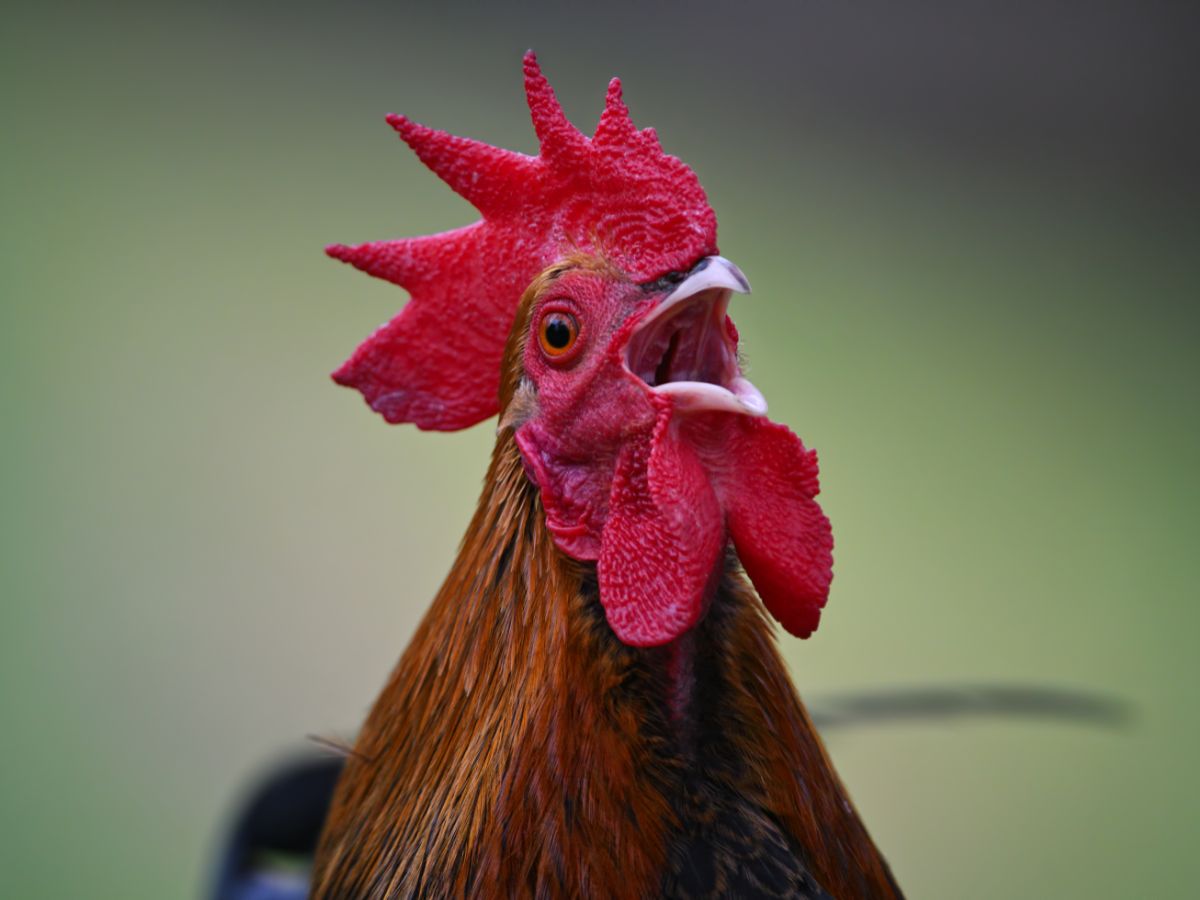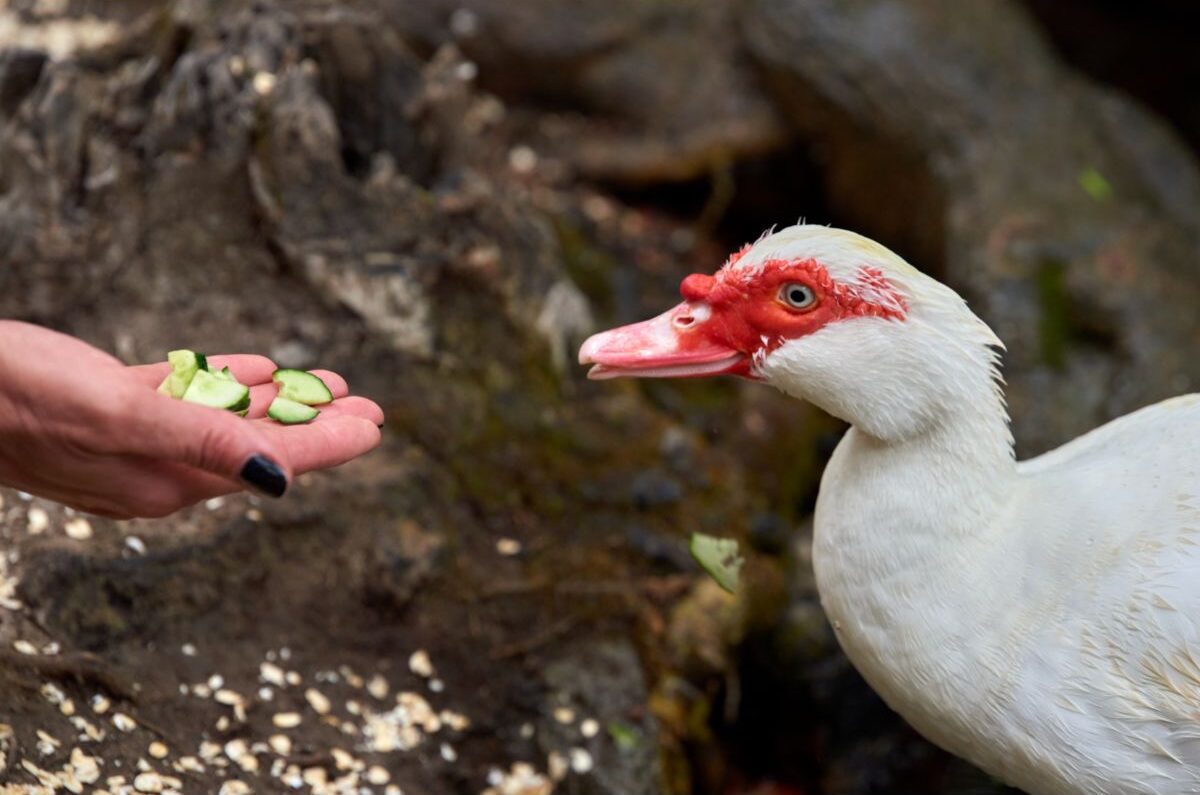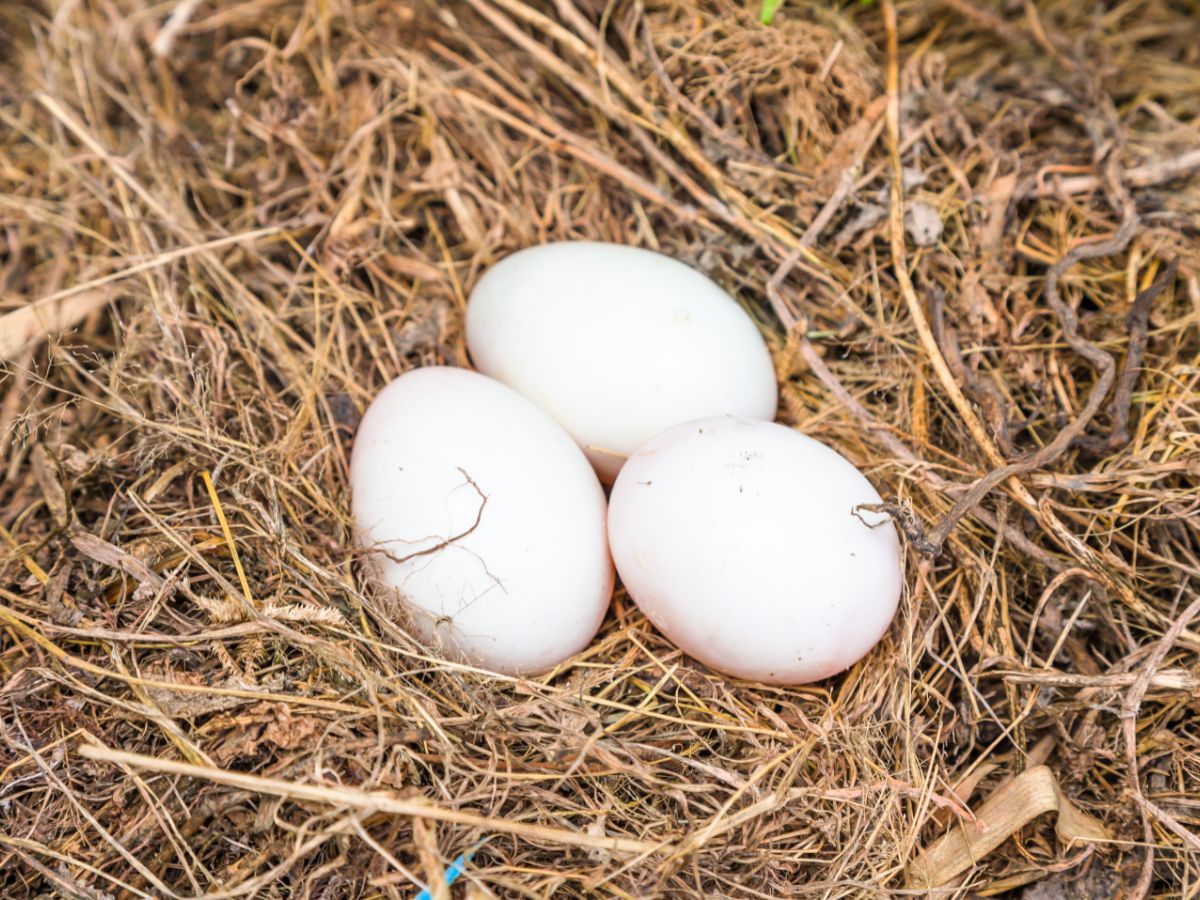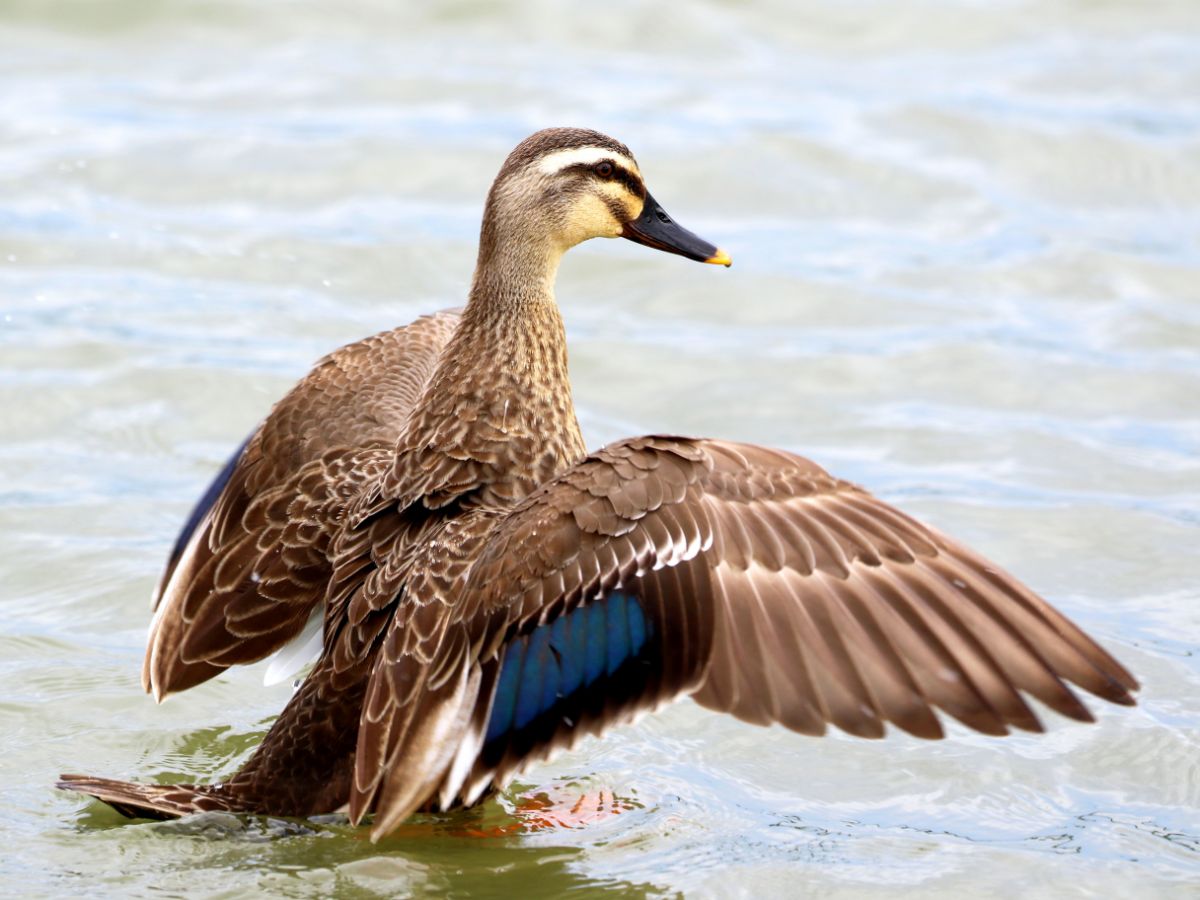A rooster’s crow is one of Earth’s most recognizable animal noises, second only to a dog’s bark or a cat’s soft meowing. Anyone with multiple roosters will attest that each one has a distinctive crow. But why do roosters feel the need to crow?
Roosters crow in response to certain stimuli such as light, sound, and food and to display dominance. Also, they will alert nearby chickens when they sense a potential threat. Research has proven that roosters crow mostly from two hours before dawn to daybreak because of their internal body clocks.
Roosters like to announce their presence in the neighborhood loudly and proudly. The sound “cock-a-doodle-do” is one that almost everyone is familiar with. Let’s find out why roosters crow, crowing etiquette, crowing at night, and much more.
Contents
What Causes Roosters To Crow?
The crow of a rooster has numerous purposes. Crowing is an essential means of communication for roosters. When it comes to reasons for crowing, roosters aren’t particularly fussy; they crow whenever they want, and some roosters are louder than others.
Roosters can crow all day long in addition to the morning crow, which is a wake-up call for the flock. In a nutshell, roosters crow to announce and define their territory and alert their flock of potential dangers.
Crowing may be heard to warn of danger to the flock and to tell the potential threat to stay away. Chickens have an excellent sense of hearing; their hearing is so keen that they can almost precisely pinpoint the noise source.
A rooster also crows as part of its mating ritual; some believe that the impulse to crow is caused by increased testosterone, which creates the need to be noisy. Some roosters will crow after mating or after a hen has deposited an egg, probably to signal to the flock that they are fertile.
Surprisingly, most people believe that roosters only crow early in the morning to announce the sunrise. According to research headed by Takashi Yoshimura, roosters crow in response to stimuli such as light, sound, or food, but they also crow according to their internal body clocks. A rooster’s internal body clock “takes primacy over extrinsic stimuli,” according to Yoshimura.
When Does A Rooster Begin To Crow?
If you want to get up at the crack of dawn every day, a rooster can serve as your alarm clock. Because the birds have an internal clock that anticipates daylight, they let out a morning cock-a-doodle-do.
The fact that roosters appear to have a 23.8-hour internal body clock explains why they crow up to two hours before dawn. They will also crow at daybreak in response to the light, which is when we humans tend to hear the crowing as we are also waking up. While this might not be a concern on a farm, it might be if roosters are kept in urban or suburban areas.
Although the reason roosters tend to like crowing in the mornings isn’t entirely understood, it is believed to be related to the idea that crowing is primarily used to announce territory and a rooster’s position in the pecking order. This would also explain why roosters appear to crow in response to sounds like a passing car or tractor; they interpret these sounds as possible competitors and crow in return.
Roosters begin to crow at about six weeks of age and will continue to do so for the remainder of their lives. The crowing also acts as a way for them to claim food when it is offered to them. Naturally, they are reasserting their presence to the world at the first chance in the morning following a restful night.
Roosters Crow According To Social Rank
In the morning, the highest ranking rooster in a flock will crow first, followed by the lower ranking roosters. Sometimes the rooster in charge will feel the need to have the last crow.
If the main rooster becomes old, sick, or weak, a younger rooster will challenge him, and a fight will break out. The winner takes everything. The loser may remain with the flock, but he may be so humiliated that he leaves.
If your flock includes more than one rooster, you’ll notice that there is more crowing. Your yard will be much quieter if you eventually lose a few roosters or have just one, which suggests that a lone rooster doesn’t need to fight for territory. Additionally, your lone rooster is less likely to act aggressively.
What Causes Roosters To Crow At Night?
Although it’s not always the norm, crowing in the middle of the night is not unheard of. The rooster’s internal clock causes it to crow at the crack of dawn, but it may also be external stimuli that cause it to crow at odd hours of the day or night.
Lights And Perceived Danger: Roosters Will Crow
A rooster’s responsibility is to guard his hens, and he takes it very seriously. Crowing can assist him in notifying his hens of any potential danger the rooster has spotted. The rooster’s crow may indicate that he has spotted a predator and is raising the alarm because many nocturnal predators prey on chickens at night.
The rooster’s crow warns the hens to seek safety from the threat. The rooster may sound the alarm in response to anything he perceives as a threat, which need not always be a lurking predator.
Even though sunrise may be several hours away, your rooster might mistake a bright light for dawn and begin crowing because he believes dawn is approaching. Like a streetlight, your rooster might crow nonstop if a light is on all night.
Artificial lighting may perplex your rooster and cause him to crow constantly. Try turning off all the lights or using a curtain or cover to block the light if you believe your rooster is crowing due to artificial lighting.
As mentioned, sound stimuli can sometimes bring a rooster’s crow on. This is most likely a result of the rooster choosing to alarm his hens after being startled. He is in charge of his hens, and it’s better to be safe than sorry.
A rooster may also crow in the middle of the night in response to the sound of another rooster. Sometimes roosters will engage in competitive crowing at night to show off their dominance.
Conclusion
There are many theories about why roosters crow; some are supported by evidence, some are fair, and some require more research. One thing for sure is that a rooster cannot sing like a bird, so his crow is one way he communicates to a large audience.
Roosters are fascinating animals since they are responsible for a whole flock of hens. For various reasons, roosters may crow at any hour of the day or night.




